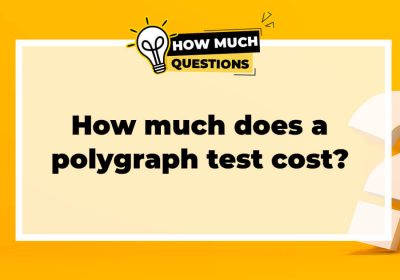
Suing for Being Shot: Legal Recourse and Compensation Explained
Being shot can be a traumatic and life-altering event, leading to physical, emotional, and financial hardships. If you find yourself in such a situation, you may wonder about your legal recourse and the potential compensation you can seek through a lawsuit. In this article, we will explore the process of suing for being shot, the factors influencing compensation, and the important considerations to keep in mind.
Understanding Personal Injury Lawsuits
Personal injury lawsuits are legal actions initiated by individuals who have suffered harm or injury due to the negligence or intentional acts of others. When it comes to being shot, personal injury laws can provide a framework for seeking compensation for the damages incurred.
Elements of a Personal Injury Case
To pursue a successful personal injury case for being shot, certain legal elements must be established. These elements typically include:
- Burden of proof: The injured party (plaintiff) must prove that the defendant is responsible for their injuries.
- Negligence: In cases where the shooting was accidental or unintentional, the plaintiff needs to demonstrate that the defendant failed to exercise reasonable care, leading to the injury.
- Intentional harm: If the shooting was intentional, the plaintiff must show that the defendant purposely caused harm or intended to cause fear or apprehension of harm.
Role of Liability in Personal Injury Cases
Establishing liability is a crucial aspect of personal injury cases. The responsible parties (defendants) may include individuals, property owners, employers, or even government entities, depending on the circumstances surrounding the shooting.
In cases of negligence, liability is determined by showing that the defendant owed a duty of care to the plaintiff, breached that duty, and caused the plaintiff's injuries. For intentional harm, the focus is on proving that the defendant intended to harm the plaintiff through the act of shooting.
Factors Influencing Compensation for Being Shot
When determining the amount of compensation for being shot, several factors come into play. These factors can vary depending on the jurisdiction and the specific circumstances of the case. Let's explore some of the common elements that may influence the compensation awarded.
Medical Expenses and Treatment Costs
The medical expenses associated with a shooting can be substantial. Compensation for medical bills may cover emergency room care, surgical procedures, hospital stays, medication, rehabilitation, and ongoing medical treatments. To establish the amount of compensation for medical expenses, it is essential to retain all relevant medical records and bills.
Lost Wages and Income Potential
Being shot can result in a temporary or permanent inability to work, leading to lost wages and diminished earning capacity. Compensation for lost wages aims to reimburse the plaintiff for the income they could not earn due to the injury. Future earnings can also be factored into the compensation calculation, particularly if the injury hinders the plaintiff's ability to perform their job or pursue career advancement.
Pain and Suffering Damages
Pain and suffering damages aim to compensate the plaintiff for the physical and emotional distress caused by the shooting. This includes the immediate pain endured, the long-term consequences of the injury, and any resulting disabilities. Additionally, emotional distress, psychological trauma, and a decreased quality of life may be considered when calculating compensation for pain and suffering.
Punitive Damages in Cases of Intentional Harm
In cases involving intentional harm, punitive damages may be awarded in addition to compensatory damages. Punitive damages are designed to punish the defendant for their willful misconduct and deter others from engaging in similar behavior. However, the availability of punitive damages and their calculation may vary depending on the jurisdiction and specific laws governing the case.
Evaluating Damages and Compensation Amounts
Assessing the appropriate compensation amount for a shooting case can be a complex process. Various factors need to be taken into account to determine the overall damages suffered by the plaintiff. This evaluation involves both economic and non-economic damages.
Economic Damages
Economic damages refer to the measurable financial losses incurred by the plaintiff due to the shooting. This includes medical expenses, lost wages, property damage, and other tangible costs. Economic damages are typically based on objective valuation, relying on receipts, bills, and other verifiable evidence.
Non-Economic Damages
Non-economic damages encompass the subjective impact of the shooting on the plaintiff's life. These damages consider the pain, suffering, emotional distress, loss of enjoyment, and other intangible effects experienced by the individual. Assessing non-economic damages often involves a subjective evaluation by the jury or judge, considering the severity and long-term implications of the injury.
Legal Counsel and Expert Opinion
Navigating a personal injury lawsuit for being shot can be complex, requiring legal expertise and professional guidance. It is crucial to consult with a qualified personal injury attorney experienced in handling shooting cases. An attorney can evaluate the specifics of your situation, gather evidence, assess damages, and provide expert opinion to strengthen your claim.
Case Studies and Precedents
Examining past cases and legal precedents can provide valuable insights into the potential compensation amounts for being shot. While each case is unique, reviewing similar cases and court decisions can help establish a reasonable range of compensation to expect. Notable cases and compensatory awards can serve as references but should not be considered exact indicators of the outcome of your specific case.
Statutory Limitations and Legal Considerations
When pursuing legal recourse for being shot, it is crucial to be aware of statutory limitations and legal restrictions that may impact your case. Statutes of limitations establish the time limit within which a lawsuit must be filed, varying depending on the jurisdiction and the nature of the case. Failure to meet these deadlines may result in the inability to pursue a claim.
Comparative fault and contributory negligence are legal principles that can affect the compensation awarded in personal injury cases. These doctrines consider the degree of responsibility of both the plaintiff and the defendant in causing the injury. Jurisdictions may have different rules regarding the impact of comparative fault on compensation.
Seeking Legal Representation and Taking Action
If you have been shot and wish to pursue legal action, seeking professional legal representation is crucial. Personal injury lawyers with experience in handling shooting cases can provide the guidance and support needed throughout the legal process. They can assist in filing the lawsuit, gathering evidence, negotiating with insurance companies, and representing your interests in court.
Consultation with Personal Injury Lawyers
The first step in the process is to schedule a consultation with a personal injury attorney. During this initial meeting, the attorney will evaluate the merits of your case, analyze the evidence, and provide legal advice tailored to your situation. This consultation is an opportunity to ask questions, address concerns, and gain a better understanding of the legal process ahead.
Initiating a Lawsuit for Being Shot
If you and your attorney decide to move forward with a lawsuit, the legal process begins. This involves filing the necessary documents, serving the defendant, and engaging in pre-trial procedures such as discovery. Your attorney will guide you through each step, representing your best interests and working towards obtaining fair compensation for your injuries.
Conclusion
Suing for being shot can be a complex and challenging process. Understanding the legal recourse available to you and the factors that influence compensation is crucial for pursuing a successful personal injury case. Remember to consult with a qualified attorney to assess the specifics of your situation and receive personalized advice tailored to your needs. While compensation cannot undo the harm caused by the shooting, it can provide financial support and help facilitate the healing process.
Disclaimer: This article is intended for informational purposes only and should not be considered legal advice. Consult with a qualified attorney to understand the specific laws and regulations that apply to your situation.
Frequency Asked Questions (FAQ)
How much can I sue for being shot?
The compensation amount that you can sue for being shot depends on various factors, including the severity of your injuries, the impact on your life, and the specific circumstances of the incident. It is best to consult with a personal injury attorney who can assess your case and provide a more accurate estimate based on the specific details.
What factors are considered when determining compensation for being shot?
Several factors are taken into account when determining compensation for being shot. These may include the extent of your injuries, medical expenses, lost wages, pain and suffering, emotional distress, and long-term impact on your quality of life. Each case is unique, and the specific circumstances will be evaluated to determine the appropriate compensation amount.
Is it necessary to hire a personal injury attorney for a lawsuit?
While it is not mandatory to hire a personal injury attorney, it is highly recommended. An experienced attorney can provide valuable guidance, navigate the legal complexities of your case, gather evidence, negotiate with insurance companies, and represent your best interests in court. Their expertise can greatly increase your chances of obtaining fair compensation.
What is the time limit for filing a lawsuit for being shot?
The time limit for filing a lawsuit for being shot varies depending on the jurisdiction and the applicable laws. It is important to be aware of the statute of limitations, which sets the deadline for initiating legal action. Missing this deadline may result in the loss of your right to pursue a claim. Consulting with an attorney promptly after the incident is crucial to ensure compliance with the necessary timelines.
Can I sue for being shot if the shooter was convicted in criminal court?
Yes, you can still pursue a civil lawsuit for being shot even if the shooter has been convicted in criminal court. Criminal and civil cases are separate, and while a criminal conviction may strengthen your civil case, it is not a requirement for seeking compensation. The burden of proof and the purpose of each case differ, so it is important to consult with a personal injury attorney to understand your legal options.
What types of damages can I seek in a lawsuit for being shot?
In a lawsuit for being shot, you can seek various types of damages, including economic damages and non-economic damages. Economic damages cover financial losses such as medical expenses, rehabilitation costs, lost wages, and future medical care. Non-economic damages encompass pain and suffering, emotional distress, loss of enjoyment of life, and other intangible effects of the shooting.
How long does a lawsuit for being shot typically take?
The duration of a lawsuit for being shot can vary significantly depending on the complexity of the case, the legal process involved, and other factors. Some cases may be resolved through settlement negotiations, while others may go to trial, which can prolong the process. It is best to consult with an attorney who can provide a more accurate estimate based on the specific circumstances of your case.
What evidence is needed in a lawsuit for being shot?
In a lawsuit for being shot, various types of evidence can strengthen your case. This may include medical records and bills, photographs of injuries, eyewitness testimonies, police reports, expert opinions, and any other relevant documentation or proof of the incident. Gathering as much evidence as possible is crucial in establishing liability and proving the damages you have suffered.
Can I still sue if the shooter is unknown or uninsured?
If the shooter is unknown or uninsured, you may still have legal options for seeking compensation. Depending on the circumstances, you may be able to explore alternative avenues for recovery, such as filing a claim against a property owner or pursuing compensation through victim compensation programs. Consulting with a personal injury attorney is essential to explore the available options in such cases.
What are punitive damages in a lawsuit for being shot?
Punitive damages are a type of damages that can be awarded in a lawsuit for being shot if the defendant's conduct is deemed to be particularly reckless, intentional, or malicious. Unlike compensatory damages, which aim to reimburse the victim for their losses, punitive damages are intended to punish the wrongdoer and deter similar conduct in the future.
Disclaimer: The answers provided here are for informational purposes only and should not be considered legal advice. Consulting with a qualified attorney is recommended for specific legal concerns related to being shot and pursuing a lawsuit.
If you want to know other articles similar to Suing for Being Shot: Legal Recourse and Compensation Explained you can visit the category Legal and Professional Services.
- Understanding Personal Injury Lawsuits
- Factors Influencing Compensation for Being Shot
- Evaluating Damages and Compensation Amounts
- Case Studies and Precedents
- Statutory Limitations and Legal Considerations
- Seeking Legal Representation and Taking Action
- Conclusion
- Frequency Asked Questions (FAQ)
- How much can I sue for being shot?
- What factors are considered when determining compensation for being shot?
- Is it necessary to hire a personal injury attorney for a lawsuit?
- What is the time limit for filing a lawsuit for being shot?
- Can I sue for being shot if the shooter was convicted in criminal court?
- What types of damages can I seek in a lawsuit for being shot?
- How long does a lawsuit for being shot typically take?
- What evidence is needed in a lawsuit for being shot?
- Can I still sue if the shooter is unknown or uninsured?
- What are punitive damages in a lawsuit for being shot?
Leave a Reply

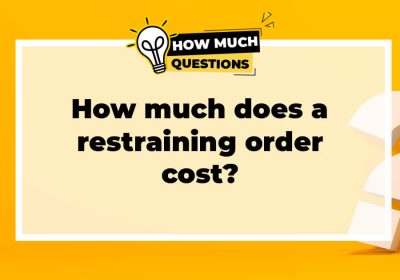
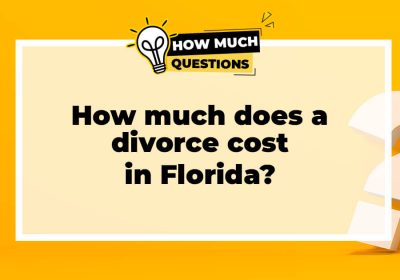
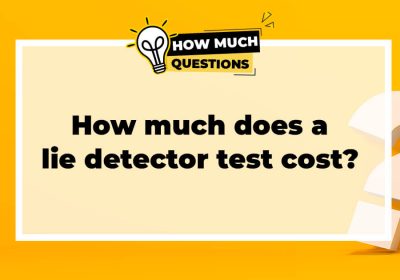
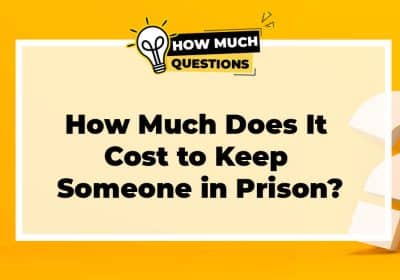
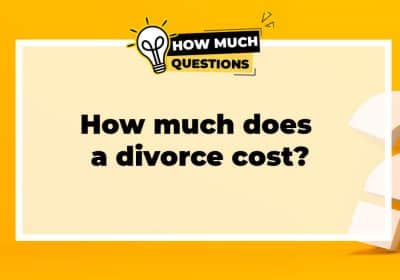

You might be interested in